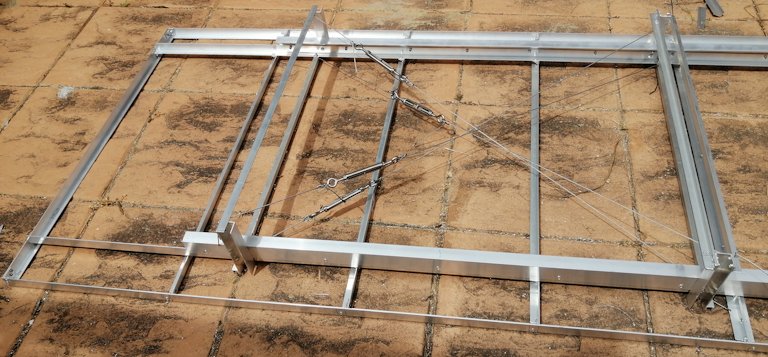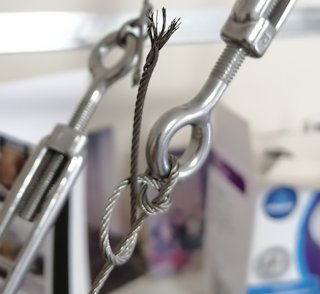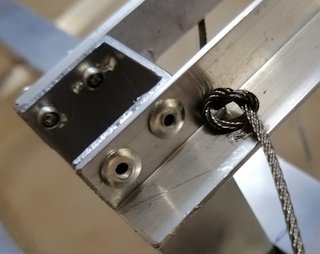Solar recumbent trike solar panel design
The big problem is, here in Western Australia there is a width
limit on unregistered vehicles, or any vehicles, that can be taken
on a footpath or cycleway, of 660mm; that's 0.66 metres.
Curiously, WA is the only State in Australia that has a
width limit. It is a very old law, probably from the days when
footpaths were narrower. Apparently the WA Transport Minister is
looking into revising that law.
Almost all recumbent trikes and many mobility vehicles ridden by handicapped and elderly people, are wider than that. Consequently, the police turn a blind eye to that particular law.
So, I am designing the solar panels to be no more than 660mm
wide, yet achieve the highest possible wattage, which is a
challenge. I am using two 120W "12V" panels. The manufacturer is
MPPTSUN/YikSun, product SWF-120W, see details:
https://en.ecosolarpanel.com/ecosovhuen/products/16704051.html
I bought these from China; however, I wanted to find out if these
can be purchased in Australia. The only place I could find is
Amazon AU site, which looks like a rebrand of the same panel, but
maybe it isn't. Dimensions, power, voltage/current, ETFE coating,
are the same:
https://www.amazon.com.au/Flexible-Efficiency-Monocrystalline-Degree-Outdoor/dp/B0BBGN2M37
...but look at the price, AU$1,079.88!!! Those probably ship via
the USA. A ripoff price.
Note, if you search for 120W flexible panels on Amazon, there will be lots of hits, much cheaper, but inferior in some way. Such as PET coating, not ETFE, and/or lower-efficiency cells. Then there are the outright liers, claiming exaggerated power output -- don't know about Amazon, but there are lots of those false claims on Aliexpress and AU eBay (or used to be, don't know about current situation, as I think the AU consumer watchdog was going to clamp down).
An objective is to build a light frame. Wasn't quite sure how to do it, and be sure that it is rigid, but started putting it together anyway...
It has turned out OK. To save weight, decided to use wire and
turnbuckles to achieve rigidity. This photo shows one-half of the
frame, upside-down:

The aluminium extrusion is mostly 1.4mm thickness, some purchased
from Bunnings, some scrounged from the shed. The tensioning wire
is multi-strand 1.5mm diameter stainless steel, also from
Bunnings:
https://www.bunnings.com.au/pinnacle-1-5mm-x-50m-stainless-steel-wire-rope_p4310958
...which I discovered is incredibly difficult to cut. Also,
unlike galvanised-iron wire, it is very springy, and it was very
difficult to tie-off the ends:

And the other end:

...there has to be another way to tie off those ends! Will hunt
around on Aliexpress, see if there any kind of crimps or whatever
for neatly tieing up the ends. Wonder also, if anything especially
for cutting stainless steel wire.
Instead of wire tensioners, I could have made two rigid box
shapes, but decided that would be much heavier. Also, want as much
unimpeded air flow under the panels.
Note, I will be seeking help from someone to do some aluminium
welding soon, and will ask also if some welds can be done here and
there on this frame, so don't have to rely entirely on the rivets.
EDIT:
Have ordered these off eBay; a swaging tool and nickel-plated
copper swages:
https://www.ebay.com.au/itm/181365084246
https://www.ebay.com.au/itm/174350581501
Also ordered turnbuckles off eBay. Four of
them previously purchased from Bunnings are inferior; well,
inferior in that they do not have locking nuts included, will
have to add them later. Ordered the 4mm ones:
https://www.ebay.com.au/itm/203741287781
Which reminds me of something. I have an old pop rivet gun, that used to belong to my Dad. It is starting to slip when rivetting 3.2mm rivets, so bought a cheap Craftright brand (Bunnings home brand) rivet gun. In my opinion, the mechanism is inferior; the stems do not fall out, have to pull them out. There is also a lack of versatility in how it works, that cannot quite describe from memory. So back to using the old rivet gun.
Tags: light
